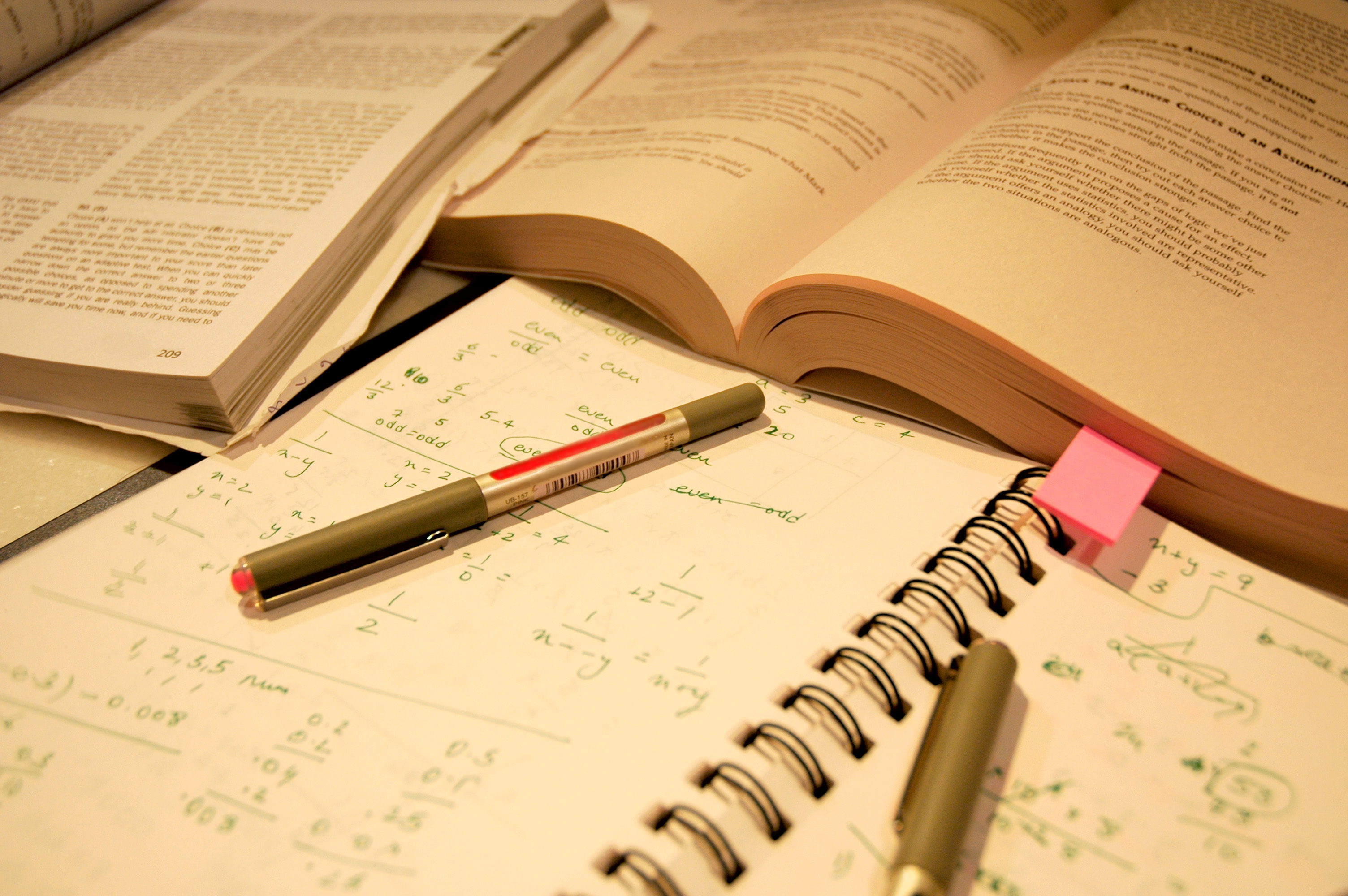Happy December!
The finish line is so close; we are in the holiday home stretch. There is just one thing we need to get out of the way—exams. Now is the time where all York U students (including myself) buckle down and start reviewing for upcoming examinations. Studying for exams takes patience, focus and time, things that I know a lot of us are slowly running out with the holiday break just ahead.
The stress of exams can sometimes lower your motivation and make you think more about getting the test over and done with than actually performing to the best of your ability. Here is my little piece of advice: never sacrifice your grade. It is better to walk into an exam with some preparation than to walk in already defeated.
I want you to succeed. So, to help you with your preparation I will share with you some study tips that have helped me over the years.
Don’t leave studying to the night before

Try not to cram.
This is nothing new. You've probably heard this statement many times before, yet a lot of us still find ourselves trying to fill our brains with information the night or morning before our exam. What happens then is that we are no longer learning material, we are just memorizing it and our memory can fail us if we don’t understand the concepts. The night before should be strictly for review and rest. What I mean by review is that you should already have a handle on the information for your exam and when you go over the information the evening/morning before, you are just refreshing what you already know. It’s like when you skim over a page in a book, you’re not going into detail.
Of course, I understand that some of us learn better when under pressure, so maybe studying a day before the exam is more beneficial than detrimental to you. If you’re like this, I would suggest getting all of the other course material (things like readings you may have missed, course videos you didn't get to watch, complicated concepts you want clarified, etc.) out of the way at an earlier date. Leave going over your notes for a later time.
Divide the material into sections
Have you ever been faced with so much material that you don’t know where to start? On Monday I had an exam for a course I've been struggling with because the lecture is late in the evening and I am my most productive during the day. I was faced with a situation where I had so much material I needed to go over that I was overwhelmed. What did I do? I decided to divide the course into sections using the course syllabus and dissected the material by section.
Most professors separate the weeks on the class syllabus into themes, and all the readings and what is discussed in class will deal with a certain theme or theory. Use this to your advantage! Separate your study notes using the guidelines on the syllabus and then you can connect the readings and course material together.
Link ideas

Link concepts together.
I mentioned this briefly in the tip before, linking ideas is the KEY to smart studying. Why? On an examination your professors want to see that you understand what is going on in the course. By connecting ideas to create a discussion you show that you accurately understand the course material, you aren't just memorizing, and that you can successfully apply it.
Look for patterns and ways that you can build a map to connect ideas together. For instance, if you’re talking about culture, don’t just think about culture by itself, link the idea to multiculturalism or pop culture if that is something else you’re studying.
Provide examples that explain what you’re talking about from course texts
Use the course texts! That is what they are there for.
When you are going through your notes and explaining a term or a complex idea, provide an example from a course reading that helps to illustrate it. Sometimes you may not remember the exact definition of a term but can recall the example; just by working out the example you may be able to explain the term that you are referring to. Providing an example for ideas is also a way for you to engage more of your senses when studying. You’ll be applying the use of images and feelings to visualize concepts, which will help them stick with you.
When you are writing your exams and answering short answer or essay questions, remember to reference a reading from your class or a theorist that you studied. You can also include something that was mentioned in your lecture or something discussed in your tutorial. This is a way for you to interact with the course material.
Be visual
Reading over your notes and highlighting isn't enough. You need to dissect ideas and put them together in ways that YOU understand. When you’re studying try drawing concept maps, making illustrations, creating brainstorm bubbles or a story using pictures. Try new things to stimulate your brain and find out how you learn the best. Not all of us are able to stare at text and learn everything we need to.
Over my years of study I found that I have to create my own study notes and I often have to write these notes out by hand if I want to be successful with my studying. Concept maps and brainstorm bubbles don’t always work for me, but charts that organize information under certain category headings work. Sometimes I create acronyms for important ideas to help me remember all of the components and I relate the acronym to something funny.
Teach it
You don’t know just how valuable a study group is until you actually participate in one. This semester I studied with two of my classmates for my first in-class exam and then I studied by myself for my second in-class exam. I found that I was a lot more prepared and confident for the exam that I studied with my peers for.

Studying with a group can be extremely helpful.
When you study with someone else it creates the opportunity for you to take on the role of teacher and explain the material to your peers. By teaching and talking through the material, you get a better understanding of what you are reviewing. As well as, studying becomes something that is less daunting, more engaging and, dare I say, fun. You also have the option of dividing up the work amongst your study group.
Furthermore, sometimes your peers are able to clarify ideas that you could not grasp by yourself.
I hope these tips resonate with you and can help you in some way. These are some of the things that have worked for me, but you may have other ideas for studying. Feel free to tell me all about them below. Another thing I suggest if you are having trouble with your studying is to go to the exam preparation workshops that are held by Learning Skills Services.
Remember to get a good amount of sleep and eat a well-balanced meal before your exam.
Happy writing!


